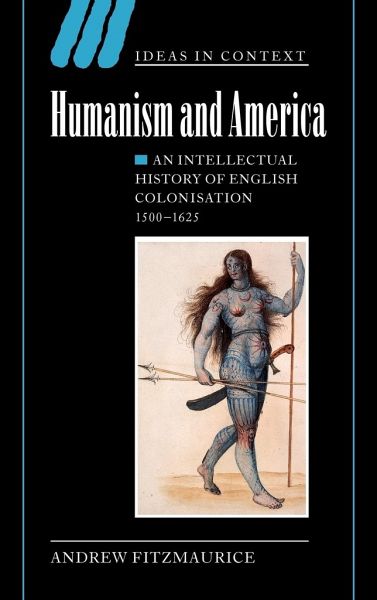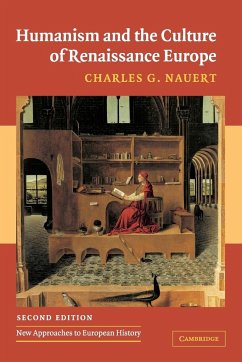
Humanism and America
An Intellectual History of English Colonisation, 1500 1625
Versandkostenfrei!
Versandfertig in 1-2 Wochen
109,99 €
inkl. MwSt.
Weitere Ausgaben:

PAYBACK Punkte
55 °P sammeln!
A major study of the impact of Renaissance humanism upon the English colonization of America.Humanism and America provides a major study of the impact of the Renaissance and Renaissance humanism upon the English colonization of America. The analysis is conducted through an interdisciplinary examination of a broad spectrum of writings on colonization, ranging from the works of Thomas More to those of the Virginia Company. Andrew Fitzmaurice shows that English expansion was profoundly neo-classical in inspiration, and he excavates the distinctively humanist tradition that informed some central i...
A major study of the impact of Renaissance humanism upon the English colonization of America.
Humanism and America provides a major study of the impact of the Renaissance and Renaissance humanism upon the English colonization of America. The analysis is conducted through an interdisciplinary examination of a broad spectrum of writings on colonization, ranging from the works of Thomas More to those of the Virginia Company. Andrew Fitzmaurice shows that English expansion was profoundly neo-classical in inspiration, and he excavates the distinctively humanist tradition that informed some central issues of colonization: the motivations of wealth and profit, honour and glory; the nature of and possibilities for liberty; and the problems of just title, including the dispossession of native Americans. Dr Fitzmaurice presents a colonial tradition which, counter to received wisdom, is often hostile to profit, nervous of dispossession and desirous of liberty. Only in the final chapters does he chart the rise of an aggressive, acquisitive and possessive colonial ideology.
Table of content:
Acknowledgements; 1. Introduction; 2. The moral philosophy of Tudor colonisation; 3. The moral philosophy of Jacobean colonisation; 4. Rhetoric - 'not the words, but the acts'; 5. Law and history; 6. The Machiavellian argument for colonial possession; 7. Conclusion; Bibliography; Index.
Humanism and America provides a major study of the impact of the Renaissance and Renaissance humanism upon the English colonization of America. The analysis is conducted through an interdisciplinary examination of a broad spectrum of writings on colonization, ranging from the works of Thomas More to those of the Virginia Company. Andrew Fitzmaurice shows that English expansion was profoundly neo-classical in inspiration, and he excavates the distinctively humanist tradition that informed some central issues of colonization: the motivations of wealth and profit, honour and glory; the nature of and possibilities for liberty; and the problems of just title, including the dispossession of native Americans. Dr Fitzmaurice presents a colonial tradition which, counter to received wisdom, is often hostile to profit, nervous of dispossession and desirous of liberty. Only in the final chapters does he chart the rise of an aggressive, acquisitive and possessive colonial ideology.
Table of content:
Acknowledgements; 1. Introduction; 2. The moral philosophy of Tudor colonisation; 3. The moral philosophy of Jacobean colonisation; 4. Rhetoric - 'not the words, but the acts'; 5. Law and history; 6. The Machiavellian argument for colonial possession; 7. Conclusion; Bibliography; Index.














